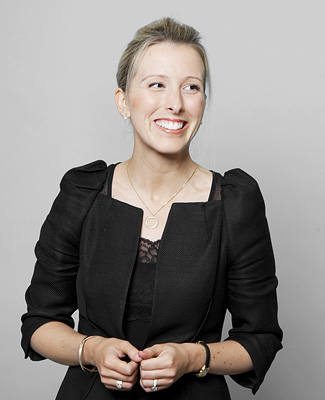Knowledge Hub
Join the Conversation!
Impartial and independent, ThoughtLeaders4 HNW Divorce Knowledge Hub hosts cutting edge industry content and insight.
Email maddi@thoughtleaders4.com to submit content.
Will Marriage Story spark a debate about Family Justice?
Date: 19/02/2020 Type: Articles Topic: Modern Family |The Oscar winning Marriage Story, released on Netflix, is a compellingly accurate, often painful to watch, account of the fallout when a marriage ends, and the damaging impact adversarial litigation can have.
As family lawyers, we are all used to scoffing at TV dramas bearing little resemblance to the reality (“did you see? They used completely the wrong court forms!? And just IMAGINE speaking to your clients like that!”), but Marriage Story really is something different.
It’s about a thoroughly decent couple, with one adored son, whose marriage ends. There are common markers: miscommunication, priority of one career over the other, adultery, the strains of parenthood, which all combine to end what had been a happy relationship. They start well, hoping to reach agreement without lawyers. They attend mediation together but the mediator isn’t the right fit. (The film leaves you with the overwhelming sense that this was a huge opportunity missed- their narrative statements about each other are beautiful. Sadly they weren’t both emotionally ready, and could each have benefitted no doubt from some therapeutic support).
Encouraged by a friend the wife accesses legal advice from a brilliantly cast (and deservedly Oscar winning) Laura Dern as the legal equivalent of a wolf in Prada clothing. The die is cast. The further destruction of their relationship by the adversarial legal process is awful to watch, as is the impact on their son.
Are the lawyers the villains of the piece? No, not really. Here again the film gets the nuances perfectly. It’s the system itself which is the problem, pitchforking these two loving parents, and spouses, into a strategic and tactical fight. And all too often, this does reflect the awful reality. With very few exceptions indeed, the dedicated and passionate family solicitors we are lucky to have in this country work tirelessly to try to settle their clients’ cases at the earliest possible opportunity. But they are trapped within a process which sadly breeds mistrust.
A Few Examples from The Film:
•The husband’s first consultation with a family lawyer (a mesmerising Ray Liotta) is a fact-finding mission designed to uncover the worst traits about the wife, to paint her in the worst possible light. By this stage the husband’s lawyers have realised, long before he has, that the wife’s case has been strategically issued in LA to bolster her chances of securing custody of their son there. The husband still believes she will return to New York. The lawyer turns to the husband, and says, ‘If she starts at crazy, and we start at reasonable, we’re still going to end up somewhere crazy’. And here is the first major problem with adversarial litigation in the family sphere. It requires you to be positional. Rather than starting at a point of reasonableness, you are encouraged to move to opposite ends of a bracket of fairness, knowing the Judge will most likely go somewhere in the middle.
•The wife increasingly disengages with the process she has started. At one point, quite early on in the legal process when the husband is still representing himself, the wife’s lawyer calls him to let him know they are pursuing an extremely aggressive approach: full custody, and (seemingly) all of his assets. He immediately flies to LA, on the wife’s lawyer’s advice, to secure legal representation. It turns out his wife has already spoken to many of the lawyers there, meaning they are conflicted out and cannot represent him. He attempts a conversation about this at handover (another classic and all too common occurrence when it’s the only time couples see each other). He asks her about what her lawyer has said. The wife replies ‘lets leave it to the lawyers’. His response: ‘but I don’t think they’re doing what you really want’. And yet already she has ceded control. It is so vital for separating couples to retain control, to instruct their lawyers, not delegate decisions, but so easy to switch off from a process which is daunting, stressful and unknown.
•Of course the film chooses the one issue about which compromise is so hard: where their child should live (New York or LA). The Court appoints a Social Worker to visit the parents and their son at home. The visit is agonisingly awkward (as many of these visits naturally are). As a viewer it seems absurd that this distant and unfriendly stranger should have the right to decide where the couple’s child should live. But of course they chose that route by delegating the decision making to the Court.
•The legal fees are ruinous: their son’s college fund is exhausted, and each uses savings and borrows money from family members.
•And then at the end of the film, when the litigation is over, we see again what thoroughly decent people they both are. Luckily a remnant of their relationship remains, to their enormous credit. For many even a civil conversation after litigation takes months or years to achieve. Sometimes it never happens.
What Can We Learn?
Well for a start, and as we all know, separating adults are vulnerable. They are often in different places emotionally. They need to be helped, and protected from making bad choices. They are wholly unsuited to an adversarial legal process, which will encourage mistrust and break down communication. It is the opposite of what they need, which is open, honest, impartial dialogue about how to move forward in this new reality, and how to make the right choices for themselves and their children.
Family Justice is ripe for reform. Courts are overrun with many cases which should not be there. Mediation has not proved to be the answer to every case. Of course it hasn’t. There is no panacea. Separating couples need options, and plenty of them. Counselling, and therapeutic support, is a good place to start. Both need to be ‘emotionally ready’ for the big life decisions to come. And they won’t be ready at the same time. But starting the legal process from a place of fear is to be avoided if at all possible. And given that couples are going to end up with a court approved, or imposed, concept of ‘fairness’, then surely for many a good place to start is to sit down together, and hear from an impartial lawyer about what would be fair for both of them, and their children. Not what is best for one, but what is fair for both. One Couple One Lawyer at The Divorce Surgery is that service. It’s new, but hopefully we are seeing the start of a better process for separating couples, and less Marriage Stories.
Samantha Woodham is a barrister at 4 Paper Buildings and co-founder of The Divorce Surgery - www.thedivorcesurgery.co.uk
Author
Samantha Woodam - The Divorce Surgery
Our HNW Divorce Corporate Partners
















